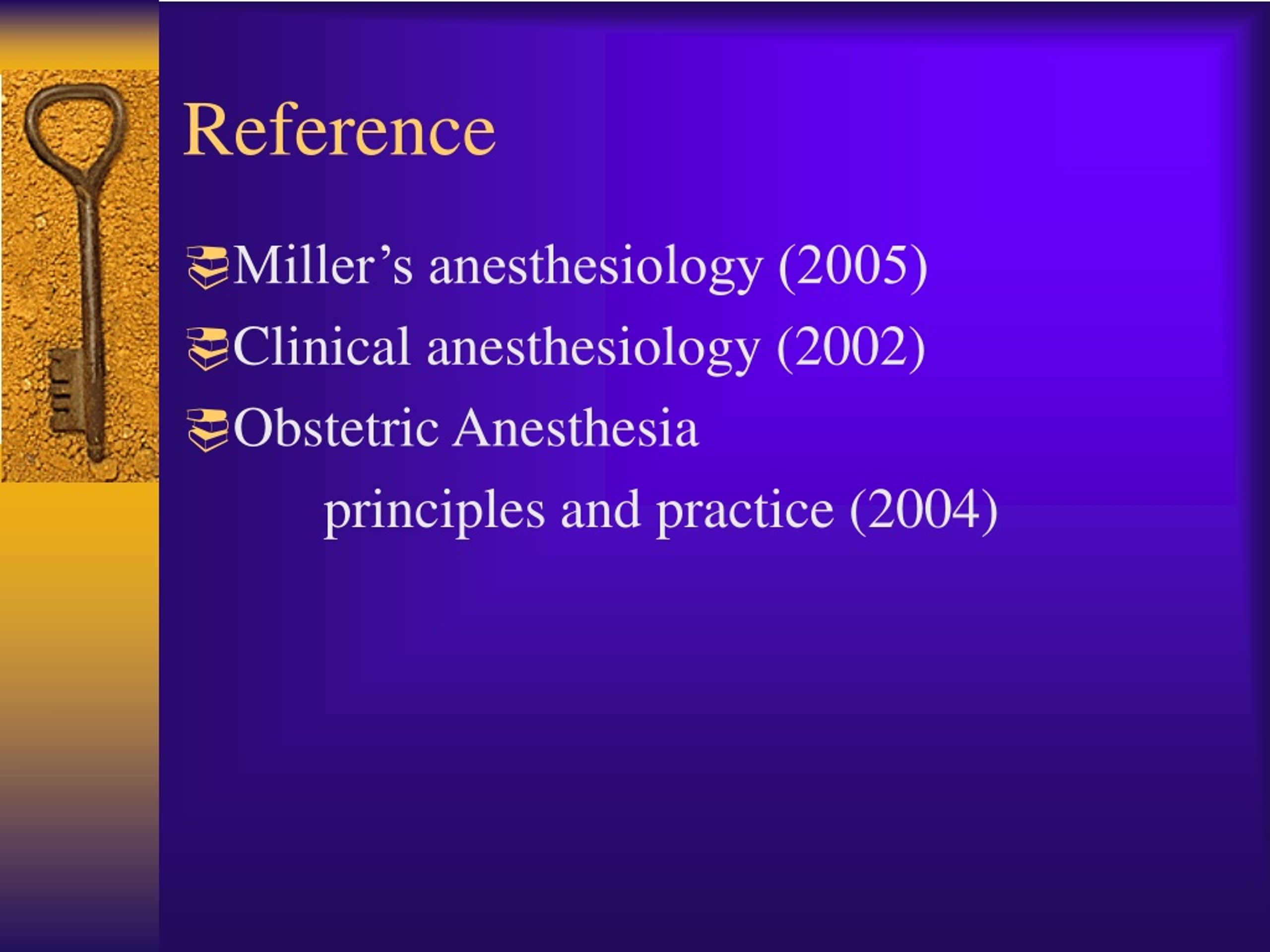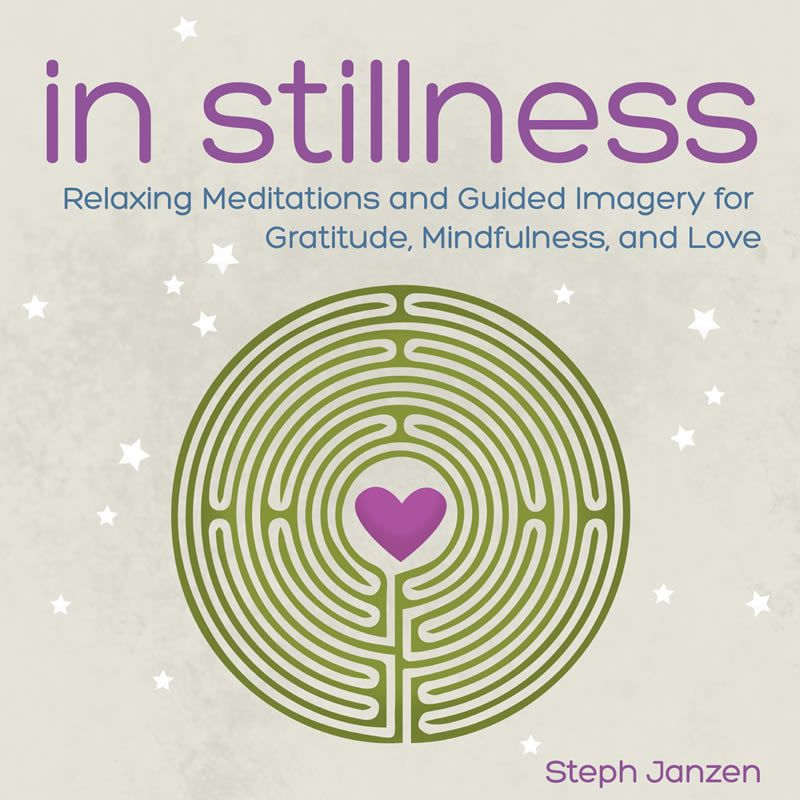Male midlife crisis treatment
How to Turn a Midlife Crisis into a Fresh Start
The idea of a midlife crisis is so common and widespread that it’s often used as the plot for TV shows and movies. You probably don’t have to think very hard to remember an episode about a middle-aged man buying a red sports car on a whim or to remember a joke in a movie blaming a character’s affair on a midlife crisis.
You’ve likely seen it in real life too, or at least heard it talked about a lot when a coworker gets divorced or a relative suddenly quits their job.
So, it might surprise you to learn that a midlife crisis isn’t a mental health diagnosis. In fact, experts have been debating for decades whether midlife crises are real at all. There’s still no good answer.
What we do know, is that there’s some evidence that reported happiness appears to drop for people between ages 40 and 60. The Centers for Disease Control and Prevention (CDC) also reports that this age group has the highest rates of depression.
Why are rates of depression so high? And where did the idea of a “midlife crisis” come from? There are a few answers to this.
One reason is thought to be that midlife is the first time many people are no longer able to think of themselves as “young.” This change in thinking can force people to rethink everything about their lives, including their marriages and careers. That might be part of why midlife is associated with a high rate of divorce and marriage trouble.
Additionally, people in midlife are generally settled into their careers and might realize they haven’t achieved the things they wanted to.
Fortunately, midlife doesn’t have to be a crisis at all. In fact, midlife is a fantastic time to make positive changes in your life. So rather than buying a sports car on a whim, try following our tips to make the most of midlife.
You can improve your relationships while working on being happier and healthier. Then maybe you can make sure that a sports car is actually in your budget.
It’s common for people in midlife to report burnout.
You might feel overworked. You might be stressed taking care of your children or an aging parent. You might be juggling your relationship with financial and other hardships. No matter what you’re juggling, it can be hard to stop and breathe. You might even feel selfish taking time for yourself.
You don’t need to. Mental health experts agree that focusing on yourself is incredibly important. Taking the time to ask yourself what you want and what you’re feeling can be the first step to knowing if you need to make a change.
So, before you do anything else, take some time to think about how things have been going for you in the past few years. It’s the best way to get started on your midlife refresh.
Midlife can bring changes. Often, these changes happen fast without an adjustment period or time to process them.
Many mental health professionals agree that one of the best things you can do is set aside the time to acknowledge those changes. This doesn’t mean you need to dwell on the past. It simply means that it’s a good idea to be actively aware of changes.
This doesn’t mean you need to dwell on the past. It simply means that it’s a good idea to be actively aware of changes.
For some people, this might mean journaling to work through events. However, even if writing things down isn’t a method that works for you, you can take time and space to reflect on any changes you’ve experienced over the past few years.
One thing that can be especially beneficial? Taking time to be grateful for any positive changes.
There are multiple benefits to learning something new. It can keep your mind active, give you something to be excited about, and give you an amazing sense of pride and accomplishment. That’s why it’s so highly recommended by mental health professionals for people in midlife. It’s also a great way to take a break and take a little time for yourself.
You can learn an astounding range of things from the comfort of your home. You can learn to speak a new language or write computer code using apps on your phone. You can take entire courses from top universities on just about any subject you can imagine. Some online course programs even allow you to earn credits or certificates.
Some online course programs even allow you to earn credits or certificates.
If you’d rather get out of the house, your local community college is a great place to start. Most community colleges offer a full slate of courses just for adult learners who’d like to pick up a new skill.
Therapists and researchers have strongly suggested that social connections are important for mental health. It can make a huge difference in your life to have people you can share good times and celebrations with, people you can call for a good conversation, and people you can count on for support during tough times.
It’s also common to feel isolated, especially in midlife. Reaching out to family and friends and trying to stay connected can help. You don’t have to plan a party or major event to reconnect. It’s best to start with a simple hello, whether that’s sending a text message to your sister, a Facebook message to a local friend, or an email to a friend you haven’t seen in years.
Unfortunately, marriage difficulties are often associated with midlife. Divorce, affairs, or simply a cooling down of romantic and sexual feelings are commonly reported to therapists.
Divorce, affairs, or simply a cooling down of romantic and sexual feelings are commonly reported to therapists.
Of course, that doesn’t mean the decline of relationships is an unavoidable part of midlife. Marriage and family therapists recommend that you take some time at this point to think about what you want from yourself, your life, and your partner. If you’re still dedicated to them, it might be a great time to find new ways to celebrate each other.
Actions, such as planning a romantic vacation, going on date nights, or taking care to appreciate each other more, can go a long way toward a happy midlife love life.
That doesn’t mean you have to be married to take time to focus on your love life. Midlife can be a good time to focus on what you want out of any future relationships, or to decide if you’re interested in having a future relationship at all.
You might decide you want to make the leap and download that dating app or swallow your nerves to tell someone you’ve been seeing casually you’d like something more serious.
Exercise is important. In addition to its many physical benefits, it can improve your mental health, sharpen your focus, and reduce your stress. It can also start to feel boring, especially if you’re already feeling restless or fighting negative thoughts in your life.
So, even if you’re already hitting the gym several days a week, finding new ways to stay active can help. It can keep you motivated, boost your mood, and increase your confidence.
Don’t be afraid to step outside your comfort zone when it comes to fitness. A ballroom dance class, hiking group, or local recreational sports league can all be fantastic ways to stay fit. Plus, they can be a fun and low-stress way to make a few new friends.
Small changes can go a long way. Midlife is an ideal time to start a new healthy habit.
You don’t have to overhaul your entire lifestyle — you can pick a small change and stick with it. You’ll get the health benefits of the change and the satisfaction that comes with maintaining a new habit. That means a mental health and physical health boost for a single action, and it’s hard to beat that.
That means a mental health and physical health boost for a single action, and it’s hard to beat that.
Some suggestions? You could start taking the stairs every day at work, bringing a planned lunch from home, having fruit every morning, or making sure to drink enough water. You can also consider cutting out some less-than-healthy habits, like drinking soda or smoking.
Spending time outdoors has proven mental health benefits. Therapists often suggest that patients in midlife take an outdoor walk at least a few times a week.
A walk around your neighborhood can be a great way to get fresh air and get your blood pumping, but you don’t have to stop there. If you want to go further, consider spending the day hiking the trails in a local park. You could bring a friend to provide motivation, or use the time on the trail to clear your mind.
Of course, you don’t have to just walk to get the benefits of the great outdoors. Boating, swimming, camping, or just relaxing on a nice day can all boost your mood.
It’s common to feel dissatisfaction with work during midlife. You might feel burnt out, bored, or that you wasted your time in a career you don’t love.
While it might be tempting to quit tomorrow, there are better ways to handle this feeling. Experts agree midlife is an ideal time to work on something you’re passionate about.
Maybe you’ve always wanted to write a novel, or maybe you’ve always been curious about selling your homemade jewelry online. No matter what, focusing on a project you really care about can boost your energy and optimism. Plus, it might bring you an additional source of income or even shift your career.
You might think of therapy as only being for times of distress, trauma, or crisis, but that’s not the case. Therapy is a great tool for times of transition, too. Midlife can be a great time to talk with a therapist.
A therapist can help you sort out feelings about past events, manage your current stress, and plan for your future. They can help you make the most of your midlife years and feel confident about your way forward.
Additionally, if midlife has brought major changes such as divorce, marriage difficulties, or death, or if it’s caused significant reflections on your past, a therapist can guide you through your thoughts and feelings.
Midlife is a wonderful time to restart things that might have felt a bit stalled in your life. Whether it’s your relationships or your health, you can take control now and make positive changes.
Right now is the best time to take steps that improve your life for years to come. You don’t have to let midlife be a crisis that drags you down.
Instead, spend some time outside, call a friend, go on a date with your spouse, pick up your guitar again, take a cooking class online, join a runner’s club, and consider making an appointment with a therapist to help you through it all.
Read this article in Spanish.
How to Turn a Midlife Crisis into a Fresh Start
The idea of a midlife crisis is so common and widespread that it’s often used as the plot for TV shows and movies. You probably don’t have to think very hard to remember an episode about a middle-aged man buying a red sports car on a whim or to remember a joke in a movie blaming a character’s affair on a midlife crisis.
You probably don’t have to think very hard to remember an episode about a middle-aged man buying a red sports car on a whim or to remember a joke in a movie blaming a character’s affair on a midlife crisis.
You’ve likely seen it in real life too, or at least heard it talked about a lot when a coworker gets divorced or a relative suddenly quits their job.
So, it might surprise you to learn that a midlife crisis isn’t a mental health diagnosis. In fact, experts have been debating for decades whether midlife crises are real at all. There’s still no good answer.
What we do know, is that there’s some evidence that reported happiness appears to drop for people between ages 40 and 60. The Centers for Disease Control and Prevention (CDC) also reports that this age group has the highest rates of depression.
Why are rates of depression so high? And where did the idea of a “midlife crisis” come from? There are a few answers to this.
One reason is thought to be that midlife is the first time many people are no longer able to think of themselves as “young.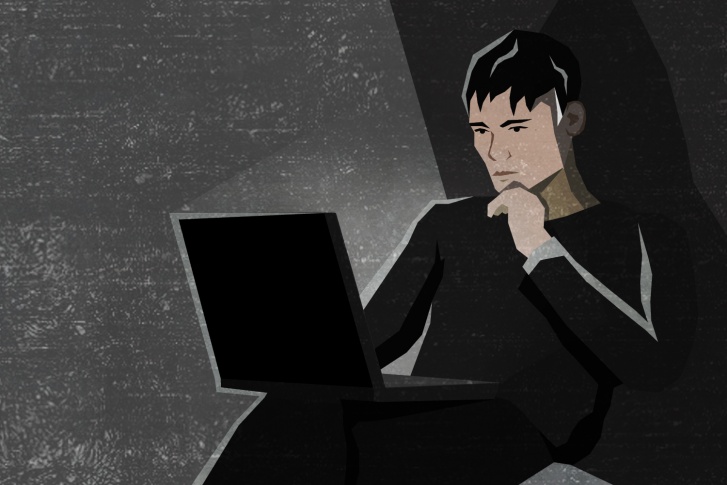 ” This change in thinking can force people to rethink everything about their lives, including their marriages and careers. That might be part of why midlife is associated with a high rate of divorce and marriage trouble.
” This change in thinking can force people to rethink everything about their lives, including their marriages and careers. That might be part of why midlife is associated with a high rate of divorce and marriage trouble.
Additionally, people in midlife are generally settled into their careers and might realize they haven’t achieved the things they wanted to.
Fortunately, midlife doesn’t have to be a crisis at all. In fact, midlife is a fantastic time to make positive changes in your life. So rather than buying a sports car on a whim, try following our tips to make the most of midlife.
You can improve your relationships while working on being happier and healthier. Then maybe you can make sure that a sports car is actually in your budget.
It’s common for people in midlife to report burnout.
You might feel overworked. You might be stressed taking care of your children or an aging parent. You might be juggling your relationship with financial and other hardships. No matter what you’re juggling, it can be hard to stop and breathe. You might even feel selfish taking time for yourself.
No matter what you’re juggling, it can be hard to stop and breathe. You might even feel selfish taking time for yourself.
You don’t need to. Mental health experts agree that focusing on yourself is incredibly important. Taking the time to ask yourself what you want and what you’re feeling can be the first step to knowing if you need to make a change.
So, before you do anything else, take some time to think about how things have been going for you in the past few years. It’s the best way to get started on your midlife refresh.
Midlife can bring changes. Often, these changes happen fast without an adjustment period or time to process them.
Many mental health professionals agree that one of the best things you can do is set aside the time to acknowledge those changes. This doesn’t mean you need to dwell on the past. It simply means that it’s a good idea to be actively aware of changes.
For some people, this might mean journaling to work through events. However, even if writing things down isn’t a method that works for you, you can take time and space to reflect on any changes you’ve experienced over the past few years.
One thing that can be especially beneficial? Taking time to be grateful for any positive changes.
There are multiple benefits to learning something new. It can keep your mind active, give you something to be excited about, and give you an amazing sense of pride and accomplishment. That’s why it’s so highly recommended by mental health professionals for people in midlife. It’s also a great way to take a break and take a little time for yourself.
You can learn an astounding range of things from the comfort of your home. You can learn to speak a new language or write computer code using apps on your phone. You can take entire courses from top universities on just about any subject you can imagine. Some online course programs even allow you to earn credits or certificates.
If you’d rather get out of the house, your local community college is a great place to start. Most community colleges offer a full slate of courses just for adult learners who’d like to pick up a new skill.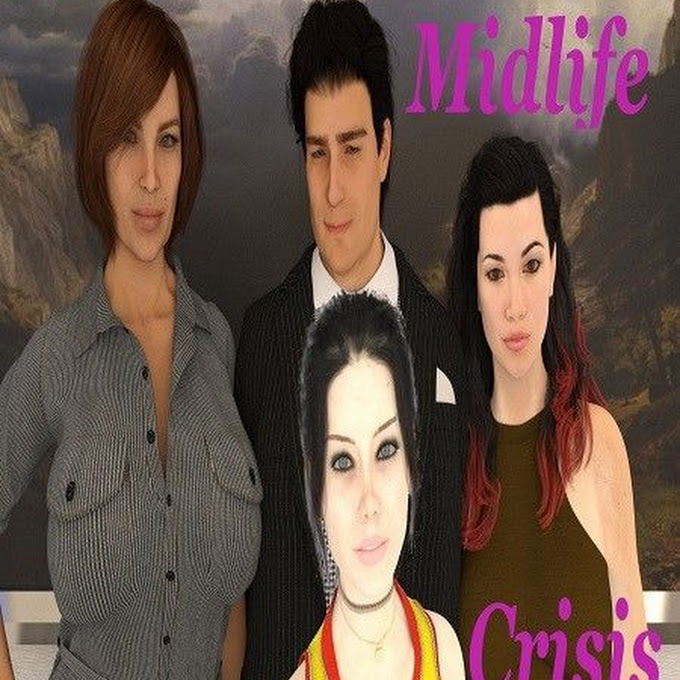
Therapists and researchers have strongly suggested that social connections are important for mental health. It can make a huge difference in your life to have people you can share good times and celebrations with, people you can call for a good conversation, and people you can count on for support during tough times.
It’s also common to feel isolated, especially in midlife. Reaching out to family and friends and trying to stay connected can help. You don’t have to plan a party or major event to reconnect. It’s best to start with a simple hello, whether that’s sending a text message to your sister, a Facebook message to a local friend, or an email to a friend you haven’t seen in years.
Unfortunately, marriage difficulties are often associated with midlife. Divorce, affairs, or simply a cooling down of romantic and sexual feelings are commonly reported to therapists.
Of course, that doesn’t mean the decline of relationships is an unavoidable part of midlife. Marriage and family therapists recommend that you take some time at this point to think about what you want from yourself, your life, and your partner. If you’re still dedicated to them, it might be a great time to find new ways to celebrate each other.
If you’re still dedicated to them, it might be a great time to find new ways to celebrate each other.
Actions, such as planning a romantic vacation, going on date nights, or taking care to appreciate each other more, can go a long way toward a happy midlife love life.
That doesn’t mean you have to be married to take time to focus on your love life. Midlife can be a good time to focus on what you want out of any future relationships, or to decide if you’re interested in having a future relationship at all.
You might decide you want to make the leap and download that dating app or swallow your nerves to tell someone you’ve been seeing casually you’d like something more serious.
Exercise is important. In addition to its many physical benefits, it can improve your mental health, sharpen your focus, and reduce your stress. It can also start to feel boring, especially if you’re already feeling restless or fighting negative thoughts in your life.
So, even if you’re already hitting the gym several days a week, finding new ways to stay active can help.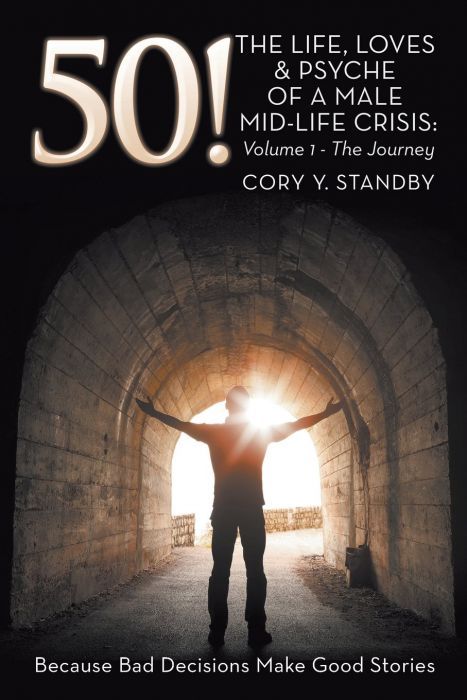 It can keep you motivated, boost your mood, and increase your confidence.
It can keep you motivated, boost your mood, and increase your confidence.
Don’t be afraid to step outside your comfort zone when it comes to fitness. A ballroom dance class, hiking group, or local recreational sports league can all be fantastic ways to stay fit. Plus, they can be a fun and low-stress way to make a few new friends.
Small changes can go a long way. Midlife is an ideal time to start a new healthy habit.
You don’t have to overhaul your entire lifestyle — you can pick a small change and stick with it. You’ll get the health benefits of the change and the satisfaction that comes with maintaining a new habit. That means a mental health and physical health boost for a single action, and it’s hard to beat that.
Some suggestions? You could start taking the stairs every day at work, bringing a planned lunch from home, having fruit every morning, or making sure to drink enough water. You can also consider cutting out some less-than-healthy habits, like drinking soda or smoking.
Spending time outdoors has proven mental health benefits. Therapists often suggest that patients in midlife take an outdoor walk at least a few times a week.
A walk around your neighborhood can be a great way to get fresh air and get your blood pumping, but you don’t have to stop there. If you want to go further, consider spending the day hiking the trails in a local park. You could bring a friend to provide motivation, or use the time on the trail to clear your mind.
Of course, you don’t have to just walk to get the benefits of the great outdoors. Boating, swimming, camping, or just relaxing on a nice day can all boost your mood.
It’s common to feel dissatisfaction with work during midlife. You might feel burnt out, bored, or that you wasted your time in a career you don’t love.
While it might be tempting to quit tomorrow, there are better ways to handle this feeling. Experts agree midlife is an ideal time to work on something you’re passionate about.
Maybe you’ve always wanted to write a novel, or maybe you’ve always been curious about selling your homemade jewelry online. No matter what, focusing on a project you really care about can boost your energy and optimism. Plus, it might bring you an additional source of income or even shift your career.
No matter what, focusing on a project you really care about can boost your energy and optimism. Plus, it might bring you an additional source of income or even shift your career.
You might think of therapy as only being for times of distress, trauma, or crisis, but that’s not the case. Therapy is a great tool for times of transition, too. Midlife can be a great time to talk with a therapist.
A therapist can help you sort out feelings about past events, manage your current stress, and plan for your future. They can help you make the most of your midlife years and feel confident about your way forward.
Additionally, if midlife has brought major changes such as divorce, marriage difficulties, or death, or if it’s caused significant reflections on your past, a therapist can guide you through your thoughts and feelings.
Midlife is a wonderful time to restart things that might have felt a bit stalled in your life. Whether it’s your relationships or your health, you can take control now and make positive changes.
Right now is the best time to take steps that improve your life for years to come. You don’t have to let midlife be a crisis that drags you down.
Instead, spend some time outside, call a friend, go on a date with your spouse, pick up your guitar again, take a cooking class online, join a runner’s club, and consider making an appointment with a therapist to help you through it all.
Read this article in Spanish.
What is a midlife crisis and how to overcome it
Many fans of the TV series "Friends" remember the series in which the main characters are experiencing a 30-year milestone. Each of the characters in the American sitcom showed the most expected reaction to a midlife crisis: Joe experienced a panic, Monica drowned her despair in wine, Phoebe summed up her years, and Rachel experienced depression, broke off relationships and began to make plans for the future. And, of course, Ross bought a red sports car. But does everyone experience a midlife crisis, and what is the average age? Is it worth repeating the usual scenarios and clichés? And, most importantly, how to deal with it?
- What is midlife crisis
- Causes
- When the Crisis Comes
- Symptoms and signs
- Male midlife crisis
- Women's midlife crisis
- How to Survive
- How to help those in crisis
The article was checked and commented by Elena Fiveyskaya, psychologist, GMS Clinic coach
Advertising on RBC www. adv.rbc.ru
adv.rbc.ru
What is a midlife crisis
A midlife crisis is an emotional state that a person experiences at the age of 30-50, most often it is associated with a reassessment of life experience. It seems that many opportunities and dreams of youth are missed, while old age (or death) will come pretty soon. For different people, the crisis occurs at different ages, it depends on individual characteristics.
Crisis is often defined as a period of emotional upheaval and associated with a thirst for change. At the time of his experience, people try to fight the thoughts of old age. Many may forego responsibilities in favor of entertainment. That's why the term "midlife crisis" is often associated with buying a sports car or starting a new relationship. But middle age is also a time of reassessment, debriefing, and self-determination, psychologists say.
Middle age is a time of reassessment, reflection and self-determination
© Shutterstock
Aging makes a person anxious and depressed. And a midlife crisis is a phase that helps you feel young again, because you don't want to put up with the fact that life is half over [1]. However, the emotional upheavals that people experience at this age do not always lead to major lifestyle changes associated with the desire to stay forever young.
And a midlife crisis is a phase that helps you feel young again, because you don't want to put up with the fact that life is half over [1]. However, the emotional upheavals that people experience at this age do not always lead to major lifestyle changes associated with the desire to stay forever young.
The term was originally applied only to men. He explained the fear of death that they experienced during this period. Today, the definition covers the physical, psychological, social problems faced by both men and women. However, many do not associate the midlife crisis with aging. So, in one of the surveys, men talked about problems at work or in the family, and women - with health and personal relationships.
Causes of midlife crisis
For many, middle age is a time when relationships and social roles change. Some people begin to care for aging parents, others feel lonely because adult children began to live separately . For others, this period becomes a time of regrets about missed opportunities [2].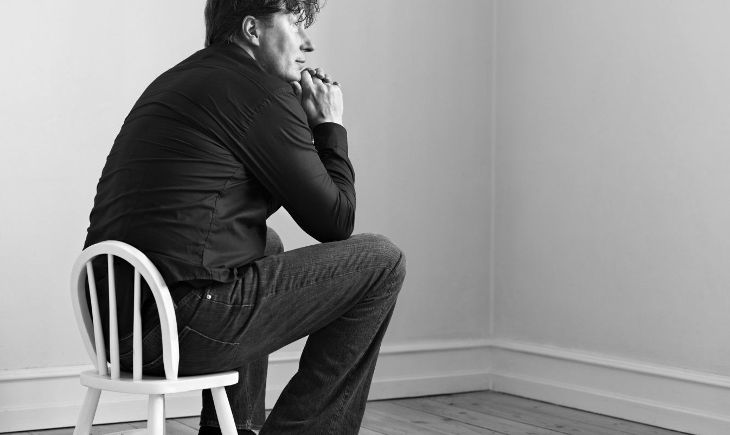
Middle age can also be a time of deep reflection. People look back on the years they have lived and wonder what their life would have been like if they had taken a different path. Some begin to regret that they did not choose another career or did not accomplish what they once dreamed of. Others recall happier days of their youth.
Decline in happiness
One theory why some people experience a midlife crisis is that they experience a decline in happiness. Research shows that the feeling of happiness can be depicted as a U-shape. Where a gradual decline in happiness levels begins in late adolescence and continues until the age of 40. Happiness begins to grow again at 50 [3]. This hypothesis was confirmed by the data of half a million Americans and Europeans. During the survey, people in their 60s reported that they had never been so happy in their lives. While forty-year-olds felt very miserable. However, the U-shaped curve is not an axiom at all.
When does a crisis occur?
Research shows that not everyone experiences a midlife crisis. Some scholars believe that the concept of crisis is a social construct. It is the belief that some kind of crisis must occur at 40 that makes people think that they are experiencing disappointment and breakdown.
Some scholars believe that the concept of crisis is a social construct. It is the belief that some kind of crisis must occur at 40 that makes people think that they are experiencing disappointment and breakdown.
People feel lonely when their grown-up children start living separately
© Yan Krukov/Pexels
The US National Midlife Survey found that approximately 26% of participants experience a midlife crisis [4]. At the same time, the majority of respondents reported that it occurred in the period before 40 or after 50 years. These data cast doubt on the axiom that such an emotional state is directly related to age, since the average is usually considered to be 45 years. In addition, the vast majority of respondents said that the crisis was caused by a serious event in life, and not by age. These include divorce, loss of a job, loss of a loved one, or relocation.
Today, the age range of the midlife crisis has expanded, as men and women under the age of 30 and over 50 can experience it. And its onset is often due to personal characteristics and significant events in life.
And its onset is often due to personal characteristics and significant events in life.
Symptoms of a midlife crisis
Psychotherapist Elena Elfimova in her book "Crisis of Personal Relationships" describes in detail the symptoms of a midlife crisis. Here's what you need to pay attention to:
- there was a need to improve physical fitness and appearance;
- there was a desire to move actively: running, cycling, dancing, going in for extreme sports: racing, skydiving;
- made drastic changes in the diet or went on a diet, started taking vitamins or dietary supplements;
- buy new clothes and spend more time on appearance;
- change your hairstyle, color your hair due to natural changes in color, thickness and quantity;
- dramatically change the circle of friends, which is replenished by people of a younger age;
- feel dissatisfied with your own achievements;
- compare yourself with other people of your age who have achieved more;
- what used to bring pleasure, got bored; there was a desire to quit a successful career;
- experience irritability, sudden fits of anger;
- you get tired faster, memory problems, new diseases have appeared, the consequences of bad habits have accumulated;
- the need for sleep has changed: you want to sleep more or, conversely, less;
- became more stressed;
- like listening to other music, suddenly want to learn how to play a musical instrument;
- have a sudden interest in painting or writing;
- Interest awakened in religion or philosophy;
- think about death more often, talk about its nature;
- trying to give new life to things that you bought 20 years ago;
- often remember your childhood;
- think about the future.

Midlife crisis in men
Men most often associate the crisis with life values and the search for oneself. At the same time, the search can imply both a change in profession, changes in family life, and cardinal changes in lifestyle. At this point, men often look back on their past years, question their achievements and begin to look for themselves in something else.
Men most often associate the crisis with life values and the search for oneself
© Andrea Piacquadio/Pexels
Signs of aging also play an important role: as a rule, health and physical abilities begin to deteriorate in middle age. Thoughts that you can be happier if you change something can cause men to have an emotional crisis and an acute desire for speedy change.
A midlife crisis usually involves changing lives in a hurry, says Calvin Colarusso, MD, professor of psychiatry at the University of California, San Diego [5]. As an example, he cites the case of his patient who wrote a note to his wife, withdrew money from a bank account and moved to another city without warning. But, according to Colarusso, this type of crisis is rare, more often men go through it less impulsively.
But, according to Colarusso, this type of crisis is rare, more often men go through it less impulsively.
Signs of a midlife crisis in men:
- You are over 40 years old. Colarusso most often sees men struggle with a midlife crisis in their 40s and 50s.
- You are concerned about the main areas of your life. This may include dissatisfaction with career, marriage, health, as well as a desire to change them for the better.
- You feel that there is little time to choose a new direction.
According to a psychologist, many men are in dire need of change when:
- appearance and physical form change;
- grandchildren appear;
- parents or friends die.
Ph.D. and psychologist from Boston, Lynn Margolis, believes that at this stage, men can experience "teenage rebellion." “A sure sign of a midlife crisis is that you feel trapped and strongly tempted to change your life,” she says. Attempts may include:
- addiction to alcohol;
- novel on the side;
- leaving the family, breaking up a long-term relationship;
- desire to add thrills.

Midlife crisis can lead to both growth and destruction of personality. If you look for the causes of your unhappiness, and then make thoughtful decisions to eliminate them, this is growth, says the psychologist. And making impulsive decisions, such as walking away from a normal life, having a relationship with a younger partner that ends quickly, or buying a car that is too expensive, leads to destruction.
A sure sign of a midlife crisis: you feel trapped and strongly tempted to make a radical change in your life
© Shutterstock
The psychologist encourages you to remember that feelings and impulsive impulses are not commands to act. After all, the desire to run away from home, work or family does not mean that it really needs to be done. These feelings may indicate problems that need to be addressed. In addition, over time, they may disappear altogether. Men make many successful changes in their 40s and older: get an education, travel, start their own business. It is important to make sure that the new goals are practical and accessible.
It is important to make sure that the new goals are practical and accessible.
Midlife crisis in women
Contrary to popular belief, the crisis affects not only men. Recent studies have shown that a similar emotional state is also characteristic of women from 40 to 65 years old [6]. During this period, they face not only physiological changes, but also problems at work, in family relationships, and in achieving financial and personal goals. The stress can be so intense that women may experience sleep disturbances and health problems[7][8].
To avoid backlash, a midlife crisis is best viewed as an opportunity to re-evaluate your life, a chance to pause and spend time and energy figuring out what's important to you, says Dr. Susan Albers, PhD in Psychology.
Hormonal changes are the main difference in these situations, notes the psychologist. As women enter menopause, estrogen and progesterone levels decrease and cause physiological changes, including disturbances in sleep, mood, and sex drive [9]. During perimenopause and menopause, hormone imbalances can also cause memory loss, anxiety, weight gain, and decreased interest in things you used to enjoy, according to Mayo Clinic doctors [10].
During perimenopause and menopause, hormone imbalances can also cause memory loss, anxiety, weight gain, and decreased interest in things you used to enjoy, according to Mayo Clinic doctors [10].
Signs and symptoms of a midlife crisis in women:
- depression and anxiety;
- lack of motivation or desire to devote time to certain activities;
- dissatisfaction with career and other life choices.
Emerging experiences can direct women's attention inward. And since they are more likely to care about the feelings and needs of others, such self-reflection can provoke an emotional crisis. In the role of mother, women may be more visible in society or have a strong bond with their children, psychologists say. But one day the children grow up and stop needing them. And when women do not devote all their attention to the family, they have time to think about their experiences.
Stress can be so intense that women may experience sleep disturbances and health problems
© Cottonbro/Pexels
How to Survive a Midlife Crisis
1.
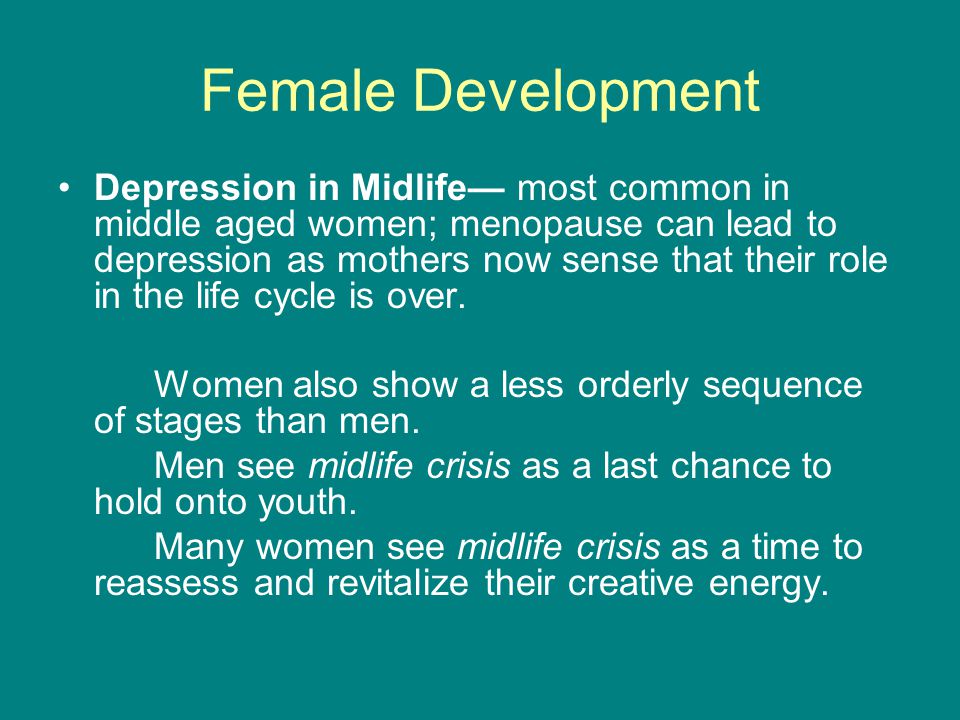 Embrace the Change
Embrace the Change Not only gray hair and wrinkles show age, but also fatigue. Therefore, the question of how to feel younger is increasingly being asked by psychologists and psychotherapists. Try not to attribute changes in appearance to age. They are also caused by unfavorable ecology, hard work and stress.
Maintain mental activity: enthusiasm and a positive inner attitude are good for appearance.
2. Take care of yourself
Look for ways to reduce stress, whether it's asking loved ones to share your experience or using stress management techniques such as meditation or mindful breathing. Take care of yourself, eat a healthy diet and get enough sleep.
3. Take care of your health
Talk to your doctor or gynecologist to help you understand what is normal in your condition and what is depression or anxiety. Consulting a therapist can also help you cope with negative emotions.
4. Train your brain
Age also manifests itself in increased fatigue and forgetfulness. Over time, the brain loses the ability to adapt to new situations. Try to diversify the usual course of life: change the route to work, give up the car, walk more often and arrange interesting events with family and friends. Stop using the calculator and start training your brain with mental counting. You can also give up diaries and entries in your mobile phone: try to remember phone numbers, memorable dates and a to-do list.
Over time, the brain loses the ability to adapt to new situations. Try to diversify the usual course of life: change the route to work, give up the car, walk more often and arrange interesting events with family and friends. Stop using the calculator and start training your brain with mental counting. You can also give up diaries and entries in your mobile phone: try to remember phone numbers, memorable dates and a to-do list.
5. Get new emotions
Travel is one of the most common tips from psychologists. Sometimes a week spent in an unknown city or country can give more impressions than a whole year of measured life.
Look for ways to reduce stress
© Marcus Aurelius/Pexels
But going to the ends of the earth in search of new experiences is not an option for everyone, given the current pandemic. Previously unknown tastes and smells will help to get emotions and create neural connections. Try new dishes or buy an unusual perfume. In addition, you can diversify your leisure time with new hobbies.
6. Be grateful
Take time to be grateful for the parts of your life that make you happy, psychologists advise. Try keeping a journal and write down what you are grateful for. Go back to your notes to see what you can change in your life.
7. Discuss your emotional state
Find accomplices. It is important to know that you are not the only one experiencing a crisis. Talking to others about how you feel is supportive. Those who have already gone through this state can share useful ideas and tips. Also, before making important decisions, discuss them with someone you trust. A friend or psychologist may have a different opinion about the correctness of your choice.
8. Do a self-evaluation
Try to understand what is important to you, what you spend time and energy on. Find out what takes energy instead of filling it. This process may involve restructuring relationships, getting rid of toxic people, finding new friends or hobbies. Let go of guilt and don't get discouraged by introspection. Realize that this is a necessity and allow yourself to explore the important questions of life.
Realize that this is a necessity and allow yourself to explore the important questions of life.
When to ask for help
Sometimes going through a midlife crisis doesn't require professional help. Perhaps, in order to feel that life has been filled with meaning, a new hobby is enough. But this emotional state can affect well-being. A midlife crisis should be treated like any other emotional crisis. If you are experiencing unpleasant symptoms that worsen your condition, it is best to seek help from professionals.
Psychological counseling will help to cope with negative emotions
© Shutterstock
Here are a few times when you should consult a doctor or see a psychologist:
- emotional stress interferes with sleep or affects appetite;
- unable to concentrate on work;
- stress or mood affects relationships with loved ones;
- lost interest in entertainment and hobbies;
- are thinking about major life changes: ending a long-term relationship, changing careers, or moving.
 At the same time, the desire to make changes is born from the internal upheavals associated with age.
At the same time, the desire to make changes is born from the internal upheavals associated with age.
How to help those who are in crisis
Experiences during this period can be quite strong. So much so that it becomes difficult to endure them not only for a person, but also for his family, friends, colleagues. At this moment, people begin to splash out their emotions and aggression, or, conversely, to withdraw into themselves.
If you suspect a friend or family member is having a midlife crisis, you can help them.
- Become a good listener for loved ones, let the person talk about their experiences. Try to listen without judgment and refrain from giving advice. Let a friend share how they feel and let them know that you are there.
- Express your concern, concern more often. At the same time, it is better to avoid exclamations from the series: “It seems that you are having a midlife crisis ?!” Instead, try asking probing questions like, “You haven't looked like yourself lately.
 Are you all right?"
Are you all right?" - If necessary, talk to your loved one about the importance of getting professional help. Suggest talking to a psychologist or doctor. Keep in mind that the changes you see in a person may indicate health problems. For example, a thyroid disorder often causes mood swings. The specialist will help to rule out medical problems and determine if a psychologist is needed.
- When someone close to you refuses to seek help from a specialist, you can consult a psychologist yourself. A therapist can help you develop a plan to support the other person and set healthy mental boundaries.
- Get help right away if you notice that a loved one could harm themselves or others. If necessary, take him to the emergency room for examination. If a person refuses to go to the hospital, call an ambulance and do not leave him unattended.
Psychologist's comment
Elena Fiveyskaya, psychologist, GMS Clinic coach
What is the difference between midlife crisis in women and men?
Any age crisis is a turning point, a transitional moment that has its own stages and patterns of development. In this midlife crisis in men and women is the same.
In this midlife crisis in men and women is the same.
Firstly, both of them will definitely have it: it will affect almost everyone. Secondly, it is directly related to its name - namely, it comes in the middle of life (median). This means that both a man and a woman will begin to compare their expectations from life with what has been achieved, can still be achieved, and with what has been lost forever.
But there are differences. The first is the age difference. If we do not take into account the tails of the distribution (for example, genes that allow a woman under 40 to look 20), then a woman begins to observe the first heralds of age-related changes by the age of 30.
If a woman has not yet given birth, then thoughts about the mythical biological clock sometimes fly into her head, becoming more insistent. Men have fewer such restrictions, at 30 they, for the most part, firmly believe that everything is still ahead.
The second difference is the goal that a woman and a man want to achieve. There is an opinion that it is more important for a woman to realize herself in a family, and for a man - in a career. But, in my opinion, this stereotype is outdated, and many men today dream of a child, and women put their career first.
There is an opinion that it is more important for a woman to realize herself in a family, and for a man - in a career. But, in my opinion, this stereotype is outdated, and many men today dream of a child, and women put their career first.
The third factor involved in the reassessment of one's abilities in middle age is related to the sexual sphere. These are menopause in women and erection problems in men. And here again we can note the difference in age limits (as well as with procreation).
But the main difference that I want to point out as a psychologist is what avoidance strategies (instead of accepting current changes) are used by men and women in the midst of a midlife crisis.
In men, trying to regain youth by committing reckless acts is the most common behavior. As they say, gray hair in the head is a demon in the ribs. They are trying to emotionally return to the pre-crisis state.
A woman, on the other hand, makes attempts to do it bodily: she decides on braces, plastic surgeries, rejuvenation procedures - all this is a multi-million dollar business that is based on the midlife crisis of the beautiful half of humanity.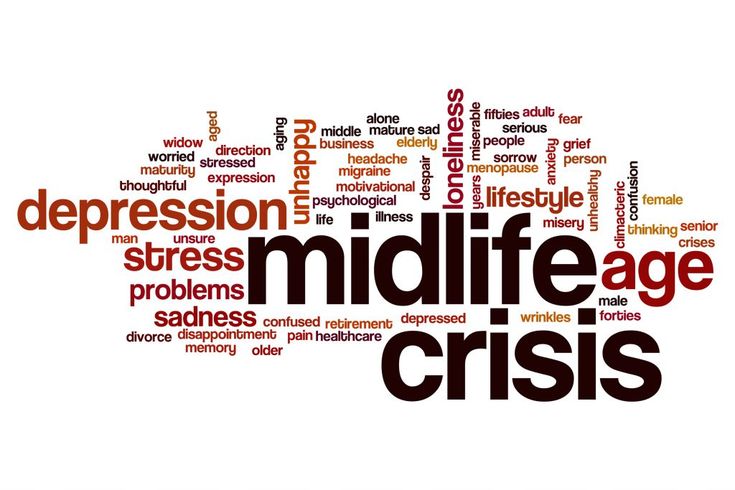
Once again, I want to emphasize that the differences between men and women are changing these days. A woman can run to buy a new Porsche, a yacht, or get a lover younger than herself, just as a man can maniacally improve his appearance.
Women do not lose the ability to receive the same vivid emotions as in their youth. In men, the emotional sphere fades, everything becomes boring, and life becomes like a “Groundhog Day”. Therefore, often men look for emotions in a new marriage, re-participate in the birth of children, experiencing this process in a different way, more consciously, as it seems to them.
A woman is more masochistic by nature, it is easier for her to devote herself to something else: a man, a child, projects. Because of her nature and ability to be a mother. Without the masochistic part, the stage of childbirth and postpartum care for the baby seems rather difficult. Therefore, this is inherent in a woman.
How long can a midlife crisis last?
Long enough if the person does not advance to the next level. In especially severe cases, such a crisis can break a person.
In especially severe cases, such a crisis can break a person.
Perhaps you have come across or even among relatives there are elderly people who are stuck in the past, have lost the meaning of life and do not expect anything more from this world. Usually they say about them: “She was never able to start a family, he never recovered from losing his job, etc.” Missed opportunities remained in the past, and the person did not set new goals for himself.
But there are also opposite cases, when a crisis pushes a person to his destiny, to what he always wanted to do, but for some reason did not do it.
Is there a complex treatment, crisis therapy?
The main therapy is a visit to a psychologist. A crisis is not a disease, but a transition from one phase of development to the next. If in adulthood there are difficulties in accepting some new circumstances, this is work with the psyche and defenses. A psychologist will help you understand what is stopping you and how to deal with it. In some cases, you will have to burn yourself out, in others - to change the strategy, and thirdly - to set new goals.
In some cases, you will have to burn yourself out, in others - to change the strategy, and thirdly - to set new goals.
How to help yourself with signs of a crisis?
It is extremely difficult to get out of the crisis on your own. I already wrote about the defenses of the psyche, which will not allow us to move on if we have not closed some specific goals, desires, our “wants”. There will be attempts again and again to get what you want, even if it is impossible. It also depends on the actual achievements of a person in comparison with his expectations. In this case, perfectionists will have a particularly hard time.
The only thing I would like to advise is not to compare yourself with others, everyone has been given a different amount of resources (both external and internal). So, even a successful businessman will be a loser compared to a person on the first line of Forbes. Another recommendation is to explore new areas, opportunities, everything new as much as possible, because the old is either unattainable, or has already been achieved and interest is lost.
How can loved ones help those who are in crisis?
Everything is very individual and depends not only on the personality of loved ones and the one who is going through a crisis, but also on the specifics of the relationships that have developed between them. If even before the crisis the relationship was not trusting, and the personality was closed and secretive, then attempts to abruptly change course can unsettle even more.
It is important to pay attention to the reduction of possible criticism, to shift the focus to achievements. Notice the destructive thoughts of your loved one and challenge them. Talk if possible. Engage in new events, activities.
Are there any consequences of the crisis? Which?
Of the negative ones - the destruction of the personality (family, career), which may be accompanied by alcoholism, drug addiction, loss of self-confidence or severe mental illness. Of the positive ones - new opportunities, a surge of energy for their implementation, another opportunity to turn your life in the right direction.
Tags: psychology
Midlife crisis: how to fight, causes
Reassessment of life values, longing for missed opportunities, reflection in the mirror, which evokes sad thoughts about the inexorably elusive youth, and extravagant actions in attempts to grab this very youth by the tail - these are just some of the signs the so-called mid-life crisis that all of us face at one time or another. How to understand that the crisis moment has already arrived? Is it worth resisting this, or is it much more reasonable to go with the flow? How to get out of a depressed state as a winner and find a new meaning in life? Explains the psychotherapist Andrey Yanin.
Julia Samoshkina
Tags:
a question to a psychologist
What is it all about?
Midlife crisis is a collective concept. We are talking about an emotional state associated with a reassessment of life experience in the age range from 30 to 50-60 years, when most of the opportunities that a person dreamed of in childhood and adolescence are missed (or, conversely, realized) and there is an acute desire for something urgently change in your life. Sometimes, instead of a passionate desire for change, depression and apathy set in.
We are talking about an emotional state associated with a reassessment of life experience in the age range from 30 to 50-60 years, when most of the opportunities that a person dreamed of in childhood and adolescence are missed (or, conversely, realized) and there is an acute desire for something urgently change in your life. Sometimes, instead of a passionate desire for change, depression and apathy set in.
The midlife crisis is multidimensional and affects various areas of life: personal relationships, life opportunities, professional fulfillment, material wealth. It is also a period of experiencing physical changes: strength falls, health begins to fail, the feeling that death is just around the corner and life is going to decline. In other words, you cannot reduce the midlife crisis to separate areas: only work, only family, only sexual relations, only worries about old age and death - this is all at once.
What are the limits of a midlife crisis?
When talking about a midlife crisis, as a rule, there are several age limits.
The first of them falls on 30 years. However, one must understand that this is an artificial selection, since the physical, intellectual and mental development is different for everyone.
Nevertheless, a man after 30 years old really often begins to worry about the following:
- what standard of living and material prosperity he has achieved;
- whether he realized himself professionally;
- whether he is married and has a family;
- whether the goals set in youth were achieved;
- are there still further prospects and opportunities to improve the quality of life and develop in the future.
If it turns out that something from this list is missing, he begins to think about it, worry and evaluate whether he can make up for it in the near future.
A man begins to feel weary from such an internal inventory process.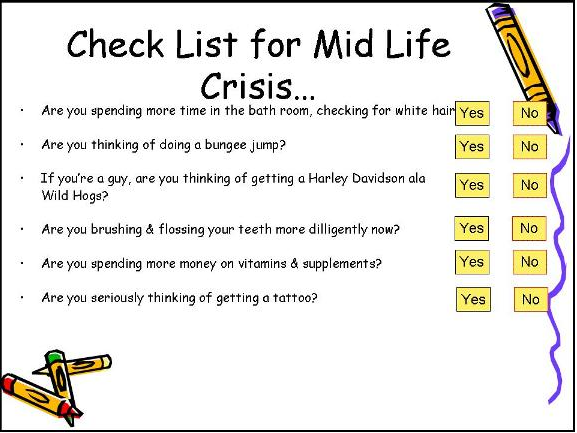
At the same time, men at the age of 30 usually have no worries about age, as well as problems with potency. The fear that it is old and useless is also absent. The process of reevaluation mainly affects the level of ambition: "I have this" or "I don't have this, and I'm worried about it."
Strictly speaking, this crisis is not too serious, because the prospects (and very good ones) still exist: at the age of 30, it is quite possible to develop further, change your place of residence, find a future spouse if there is such a need, and so on.
The next milestone - closer to 37-40 years old - is already beginning to resemble a crisis to a greater extent, because at this moment many things from a man begin to leave. In particular, there are changes in health, appearance and physical data.
The key problematic moment of this period can be called problems with potency - even death is not as terrible for men as its loss, because, in fact, this is the loss of male identity. For a man, this is a disaster, because he begins to feel not completely complete. As a result, this can change attitudes towards women and life in general. It is like a filter or a prism through which a man looks at the world. It is at this moment that he begins to destroy the usual foundations of his life. So, often after living together in marriage with one woman for 15–20 years, the husband has a mistress and family relationships begin to crack at the seams.
For a man, this is a disaster, because he begins to feel not completely complete. As a result, this can change attitudes towards women and life in general. It is like a filter or a prism through which a man looks at the world. It is at this moment that he begins to destroy the usual foundations of his life. So, often after living together in marriage with one woman for 15–20 years, the husband has a mistress and family relationships begin to crack at the seams.
The most striking male crisis falls on the period of 37-42 years. It's a transition from being an alpha male who can't handle anything to feeling like he's not physically as strong as he used to be. After a morning run, he suddenly feels very tired. He begins to catch himself on some minuses and understands that he is different now. Or he sees that he is starting to turn gray or lose his hair. Or notice wrinkles. A man is painfully experiencing the transition from his powerful resource state to the phase of withering.
What actually underlies the midlife crisis?
Let's digress from specific things and look at events more broadly. We are all born and, being small and completely defenseless, are completely dependent on the environment, which in one way or another tells us what to do, how to live, what to focus on.
We are growing and developing, and we have no fear that "life is going downhill and soon we will die." We are full of hope and confidence that much will still be achieved, experienced and felt. Then comes adolescence - we ardently strive to realize something, realize our ambitions, move somewhere: that is, in fact, we begin an independent life, during which we check our plans, goals, achieve something, something then - no. In the wake of such rapid changes, there is no time to think “what have you actually achieved?”, because all the best is yet to come.
But at some point, those notorious thirty come, then forty, and then, alas, some of the goals may not be achieved.
And here, all the social norms and social rules that we have fulfilled or not fulfilled are subjected to rigorous analysis and comparison. Along with two columns: "reached" and "did not reach" - a third appears: "I will never reach". The older we get, the less prospects. That's why a midlife crisis inevitably starts to show up.
Can you identify specific symptoms of a midlife crisis?
Often in books and on the Internet you can really find a list of signs of a midlife crisis. Among them, the following most often appear:
- alarm;
- irritability;
- mood swings;
- conflict;
- feeling that life is running out and you don't have time to do something important;
- feelings of loneliness;
- decline in vitality;
- pessimistic views on the future;
- feeling of hopelessness and others.
However, if you look at these symptoms in an abstract way and do not comprehend them within the framework of a particular problem, they will not say anything. You can worry about anything, conflicts with the environment are not excluded at any age, we can get annoyed with or without reason.
You can worry about anything, conflicts with the environment are not excluded at any age, we can get annoyed with or without reason.
If we take a midlife crisis, it is not only about a complex of external manifestations (for example, depression and increased anxiety). It is much deeper and is ALWAYS accompanied by:
1) thoughts about the meaning of life and how this life is lived;
2) the feeling that what we have now will remain unchanged - and this is categorically not satisfied.
A person is suddenly overwhelmed by a feeling of a complete lack of prospects, which is aggravated by the fading of physical capabilities.
If we take examples from cinema, this state is perfectly conveyed by the hero of the film Groundhog Day, each day of which repeated the previous one. The midlife crisis is no less vividly conveyed in the cartoon The Simpsons: Season 25, Episode 4.
youtube
Watch
However, against this background, men, as a rule, try to change something in their lives: live better or live a brighter emotional life. This is where the search for new sexual partners begins, flings on the side, hunting trips, skydiving, attempts to change the place of residence and move somewhere, start life from scratch with another family - any attempts to saturate your life and jump out are used from this emotional hole. So a person tries hard to compensate for what he once did not receive.
Does everyone face the fear of death during a midlife crisis?
During a midlife crisis, a person is overcome by fear of death. This is the revival of children's fear. As children, we are aware of our mortality and worry that we will die at a very early age - usually before the age of 7. Then we forget about it. But when we notice that the body is aging, this fear begins to revive.
The fear of death at the stage of the midlife crisis, one way or another, is connected with how satisfied we are with life now and how rich it is. These are related things. A person who lives a bright life, from which he receives moral satisfaction, as a rule, does not think about death. If a person is overcome by such gloomy thoughts, then either he is seriously ill, or his life does not suit him at all.
Should we fight the midlife crisis?
There is no general correction for everyone, no general recipes. Sometimes they say: a child has a transitional age, he is so unbearable. But what is transitional age? This is the state when a child is no longer a child, but not yet an adult. Hormones begin to be intensively produced in him, his behavior changes, irascibility, eccentricity appear, he does not always understand himself. After some time, he enters a more physically mature state, and after 20 he is already obliged to behave like an adult, because society begins to demand that.
A midlife crisis is also a condition. And the problems associated with this state, everyone solves in their own way. Someone can solve them on their own. And someone - to go deep into painful thoughts, and then he will need help. There is nothing shameful in this, because everyone goes through this crisis! There is no person who would not go through this crisis: only for some it is easier, for some it is more difficult, for some it is very difficult. What is it connected with? First of all, with the environment and with the achievements of each individual person. If he has more or less come close to all his dreams and expectations that he had at a young age, in other words, realized himself - no matter in the family, children, the business with which he earns a living, or in something else - everything will be much easier to flow.
Do family problems always signal a midlife crisis?
As you know, where it is thin, it breaks there. If, for example, the family has already fulfilled its role - the children have grown up, the spouses are more like friends - the emotional relationship between them may weaken, which may lead to the emergence of a desire to start relationships on the side.
If, for example, the family has already fulfilled its role - the children have grown up, the spouses are more like friends - the emotional relationship between them may weaken, which may lead to the emergence of a desire to start relationships on the side.
Does this refer to a midlife crisis? The question is moot. It happens that people met, got married, realized everything conceived within the framework of the family, and then there is a feeling that something is missing. And an attempt may be made to create another family. However, if we do not know for sure how people met and why they got married, it is not at all prudent to tie their separation to a midlife crisis. It happens that the relationship between people is such that divorce is the logical conclusion of their relationship.
How do most of us experience a midlife crisis?
Everyone goes through a midlife crisis with different impressions.
You can make a list of two columns: on the right "what I want" and on the left "what I got". Match these columns. If the lists on the right and left are about the same, then the midlife crisis will be felt very weakly.
When a person has a lot of embodied things behind his back, then the feeling of accomplishment, the feeling of his own worthiness will warm and support him very well, as a result of which he will be able to continue to make plans and set goals, already taking into account his current physical and life capabilities.
It is much more pleasant to plan something when you have a lot of things behind you. And it’s harder to plan when much of what was previously planned has not come true: in this case it is difficult to understand what you are capable of, and chaos arises in your soul.
But as we have already said, the midlife crisis is NOT A PATHOLOGY. This is a state of mind, an emotional experience associated with the age at which a person turned out to be, what he can afford further, what he wants to fix, what to get, what to catch up. In other words, this is an assessment of the lived segment of life and making plans for the future.
In other words, this is an assessment of the lived segment of life and making plans for the future.
And now this crisis is coming. What is happening? A person is acutely worried about the loss of some opportunities. He is afraid of the prospects that he sees around him or that he has drawn for himself. But at some point, these feelings begin to fade. There is an understanding that there is nothing to be done about it. You should live on. When a person looks around, talks about this topic with someone else, he understands that he is not the only one who has encountered this. And as a result, it gradually calms down. You have to upset yourself very much with some gloomy prospect in order to worry for a very long time. This condition usually stops on its own or loses its severity over time.
Two most common scenarios can be distinguished:
-
people tried to improve or change something, something worked out, but something didn’t, then life goes on, and over time their midlife crisis loses its sharpness;
-
people at a higher level of meaning try to understand themselves, find ways and means to live the rest of their life more vividly and, as a rule, find another scenario and learn to enjoy the next life.
 Faced with a crisis, they come out of it stronger and more constructive and find new meaning.
Faced with a crisis, they come out of it stronger and more constructive and find new meaning.
How can you make your life easier during a midlife crisis?
It all depends on the needs of the person. If it is very difficult emotionally and you want to get out of this state as soon as possible, then they seek the help of a psychotherapist in order to understand themselves, find the causes of anxiety and find the best solution. Such people, as a rule, achieve good results with professional support and go through this period with much less shock.
When talking about the work of psychologists or psychotherapists to help a person, we always start from specific symptoms. Which area has the most? If they are concentrated in the sphere of personal relationships, then we begin to help a person to establish them and correct something in them. If this is related to professional skills, there is a need to soberly assess the skills and resources of a person and develop or change something in this area.


